How smart buyers preserve what works while driving necessary change
When we acquired XL Engineering in Sandbach, Cheshire in 2021, we thought we understood the challenges ahead. The precision engineering company had strong fundamentals, loyal customers, and a skilled workforce. What we didn’t anticipate was how the post-pandemic material inflation crisis would test not just our financial projections, but the very cultural fabric of the business.
As steel prices rocketed 40% and delivery times stretched from weeks to months, the deal that made sense pre-pandemic suddenly looked precarious. But it was precisely during this crisis that we learned the most valuable lesson about cultural integration: when external pressures mount, having the team’s trust becomes everything.
The Founder Culture Reality
Founder-led businesses develop what we call “cultural DNA” – deeply ingrained ways of operating that reflect years of shared experience. At XL Engineering, this meant three teams in one company, reflecting the founders running the business in “silos”. They’d weathered previous storms together, with informal communication channels and decision-making processes that had evolved over decades.
The challenge for buyers? This cultural strength can become a barrier when change is needed. When the material crisis hit XL Engineering and we needed to rapidly adjust pricing, procurement, and customer communication strategies, the initial response was predictable: “This isn’t how we’ve handled supply issues before.”
Evolution vs Revolution: What We Learned at XL Engineering
The Revolutionary Approach (Why It Fails)
Many buyers see inefficiencies and immediately implement wholesale changes. During the material crisis, we could have imposed new procurement systems, restructured decision-making, and demanded immediate cost-cutting. The result would likely have been mass departures at the worst possible time.
The Evolutionary Approach (What Actually Worked)
Instead, we took a different path at XL Engineering:
Month 1-3: Listen and Learn Before changing anything, we invested time understanding how the team really operated. We discovered that their informal supplier relationships and flexible customer communication had actually helped them navigate previous challenges better than rigid corporate processes would have.
Month 4-12: Collaborative Problem-Solving When material costs exploded, instead of dictating solutions, we brought the team into the problem-solving process. The production managers knew which customers would accept price adjustments and which suppliers might offer creative payment terms. This wasn’t just consultation – we genuinely needed their expertise. Plus we had to renegotiate the deal with the Sellers without resorting to litigation! Hiring a capable General Manager with fresh commercial eyes also helped very much.
Year 2+: Strategic Transformation With trust established through the crisis, we could introduce bigger changes: promotion of key staff, improved supplier contracts and weeding out customers that didn’t suit plus strategic planning processes. By this point, the team saw these as tools to handle future challenges, not threats to their autonomy.
Golden Handcuffs: Retaining Critical Talent During Crisis
The material crisis at XL Engineering taught us that retention strategies need to work under pressure. When uncertainty peaks, valuable employees start looking at their options.
What Actually Works
Financial Incentives with Meaning At XL Engineering, we structured retention bonuses tied to navigating the crisis together. The General Manager was promoted to the Board and gifted shares whilst a new GM came up the ranks from the team.
Enhanced Decision-Making Authority Instead of centralising decisions during the crisis, we formalised the authority that key employees had been exercising informally.
Cultural Recognition We created “crisis response” bonuses for the entire team who worked extra hours to maintain deliveries when supply chains were stretched. This wasn’t just about money – it was about recognising that everyone had gone above and beyond.
Non-Financial Golden Handcuffs
Often more powerful than money:
- Career development opportunities that weren’t possible in the previous company structure
- Professional training budgets and industry certifications
- Strategic input into business planning and major decisions
- Flexible working arrangements that recognise work-life balance
The key principle: make staying more attractive than leaving, especially during challenging periods.
Key Lessons from the XL Engineering Experience
Trust is everything during crisis. When material costs exploded and delivery times stretched, having the team’s confidence meant they shared critical supplier intelligence and customer insights that helped us navigate the storm together.
Culture beats process under pressure. The informal relationships and communication channels that seemed inefficient in normal times became our competitive advantage when rapid decisions were needed.
Involve, don’t impose. The solutions that worked came from combining our strategic perspective with their operational expertise. Neither of us had all the answers alone.
Golden handcuffs work best when they recognize shared achievement. Tying retention bonuses to successfully weathering the crisis together created alignment, not just incentive.
The Bottom Line
Cultural integration isn’t about eliminating the founder’s influence – it’s about building upon what works while adding new capabilities. At XL Engineering, we kept the agility and customer focus that made them successful, while adding financial resources and strategic planning that helped them handle unprecedented challenges.
The goal is evolution, not revolution. When you respect what people have built while helping them achieve things they couldn’t do alone, that’s when real value gets created.
At Plutus Capital Partners, we’ve learned that successful acquisitions happen when buyers understand they’re becoming stewards of something people have spent years building. If you’re considering an exit strategy or acquisition, we’d welcome the opportunity to share more insights from our 20 years of experience.

